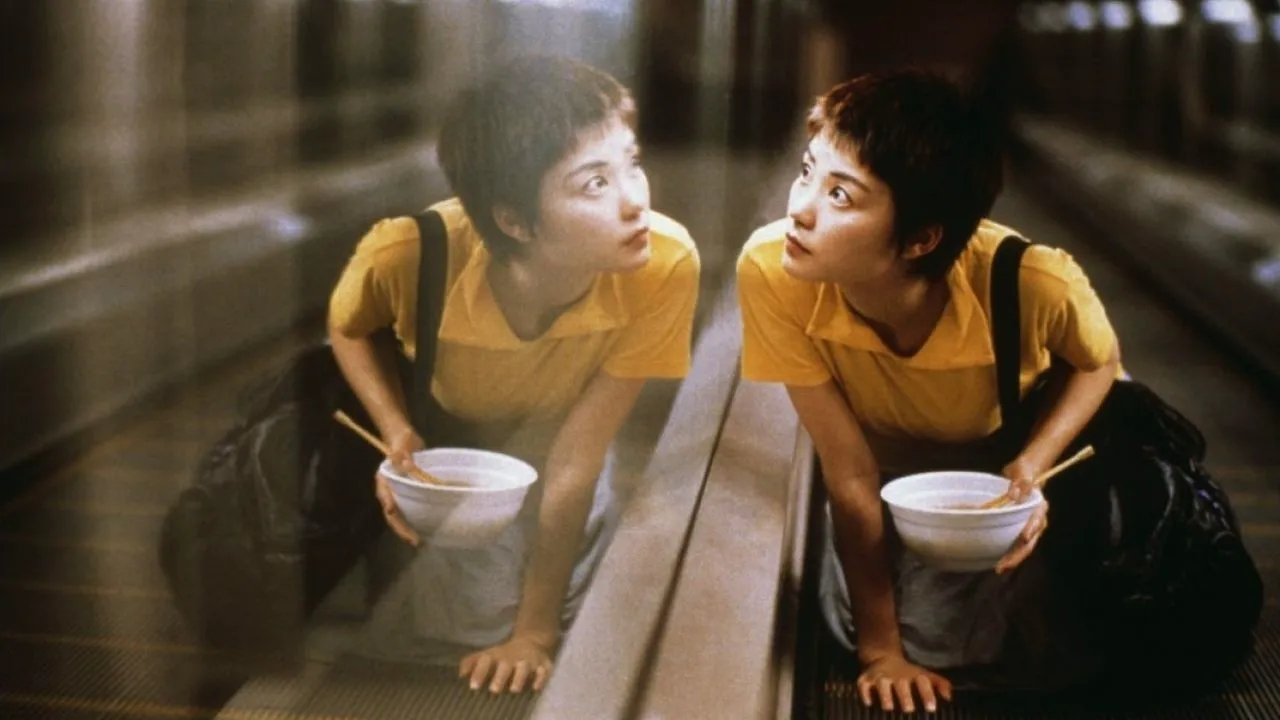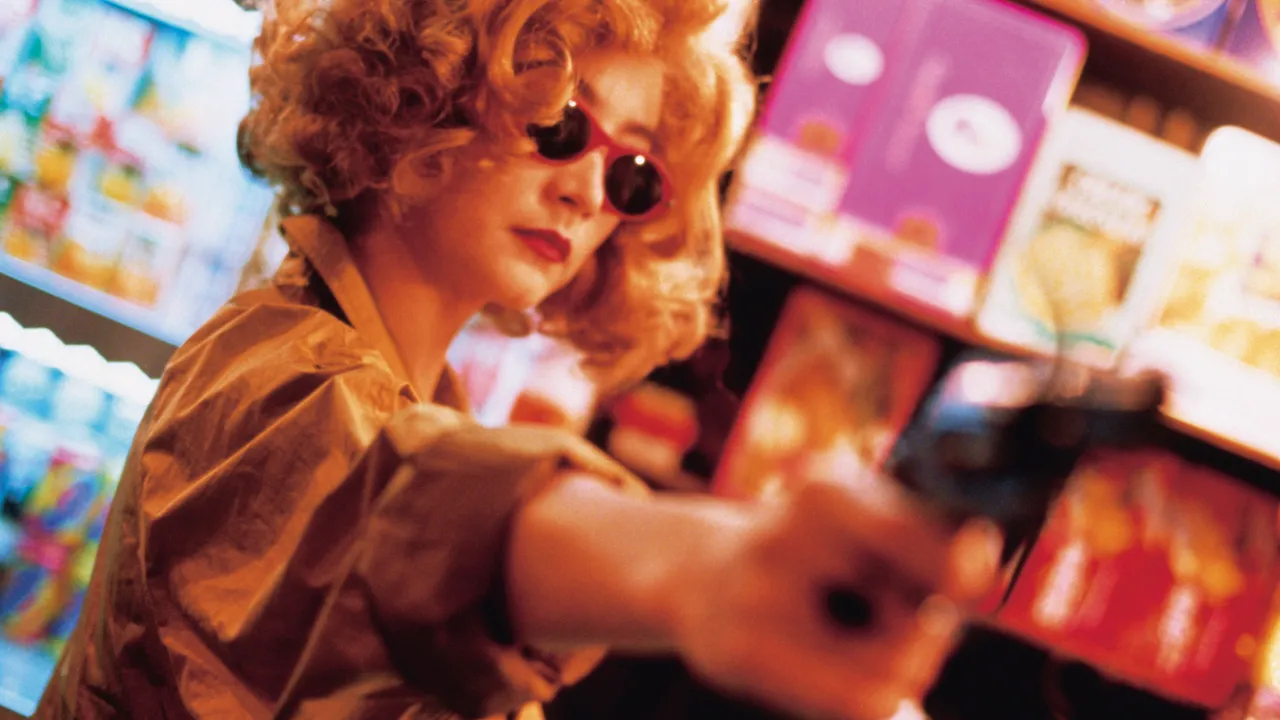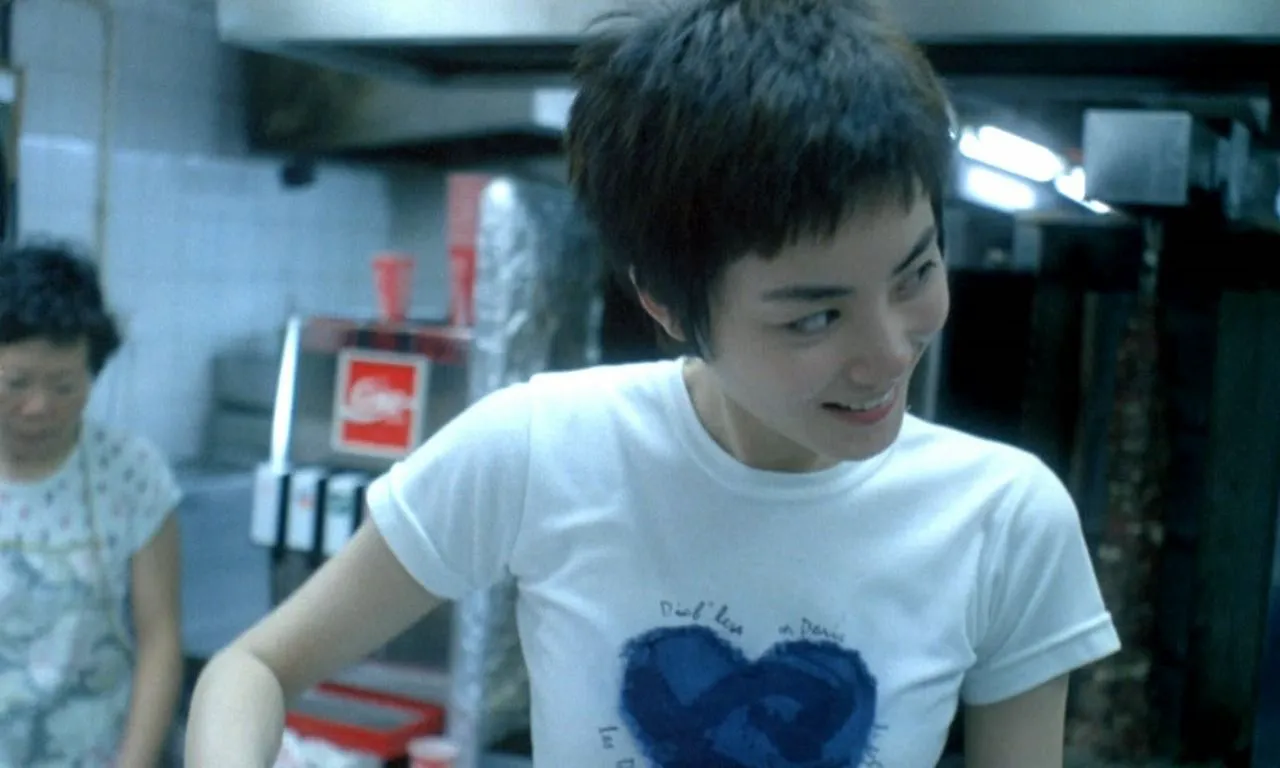Chungking Express: A Whimsical Dance in Neon-Lit Hong Kong
Flight attendants come and go, canned goods expire, and drug couriers discreetly transport their cargo beyond the frame. The Hong Kong river flows, reduced to mere streaks on the screen.
“Chungking Express” is a film of pure velocity, squeezed into the brief window between two months of filming the epic “Ashes of Time” (because every Chinese director, regardless of dialect, must make a film with flying and swords). It almost didn’t exist, and this spirit of delightful impermanence permeates the entire film. In a more conventional cinematic space, such disparate elements—canned pineapples, a blonde wig and sunglasses, a pager left at a stadium, a beautiful, bare flight attendant, and the Mamas & the Papas’ song “California Dreamin’”—could never coexist so seamlessly.

No matter how closely you listen to the voiceover or gaze into the magical, neon-drenched blur of colors, the connections don’t become clearer; they simply aren’t there. Cause, effect, action, reaction—these are concepts from another world. Only Christopher Doyle’s atmospheric cinematography, the impeccable casting, and the film’s effortless rhythm keep this house of cards from collapsing, allowing it to gracefully soar instead. Time, like jelly, flows around the characters as the sleepless city rushes past them in a torrent of events.
Standing amidst this chaos, they appear as grand, awkward figures—fragile yet seemingly eternal, like the fast-food stall that lends the film its name. Flight attendants come and go, canned goods expire, and drug couriers discreetly transport their cargo beyond the frame. The Hong Kong river flows, reduced to mere streaks on the screen. Meanwhile, cops 663 and 223 pay no attention to the passage of time, even though “everything has an expiration date, even love.” One obsessively checks his pager daily (“Has May called?”) and runs the same route, while the other is trapped in an endless loop of “California Dreamin’” at a street corner, always ordering the same salad. “I thought we would be together for a long time,” Officer Tony Leung remarks almost casually.

The Allure of Impermanence
Eternity always seems a little longer than it actually is. The anticipation of an ending becomes the central theme of this centrifugal film, which avoids focusing on anything in particular. In the first half, two people carelessly move towards each other, only to go their separate ways after barely taking off their shoes. In the second half, another pair stands opposite each other, never crossing the counter. As the English philosopher Hume observed, there may be no real connection between cause and effect—just coincidence. “Chungking Express” has its own logic that defies linear thinking: you have to wait thirty days for the pineapples to expire. After all, they have to be eaten sometime.

A Revolution in Syntax
It’s understandable why Quentin Tarantino, whose distribution company (The Rolling Thunder) brought Wong Kar-wai’s film to America, wept while watching it. He wasn’t just captivated by the big-eyed beauty Faye Wong, the impeccable attention to detail, or Christopher Doyle’s impressionistic cinematography, although there’s certainly much to admire. No, these were the tears of a technically skilled Salieri confronted with a Mozartian trifle. Kar-wai’s film revealed to him the existence of a different kind of creative freedom. The American rule-breaker came face to face with someone who seemed unaware of any conventions, throwing whatever he pleased onto the screen: personal cinematic memories (like Brigitte Lin in a trench coat), intimate sobs, and disjointed fragments of phrases.
It seemed to Tarantino that, while whispering a beautiful melody to himself, Kar-wai had revolutionized syntax: the story disappears, and the intonation hangs in the illuminated air—how is that possible? Or perhaps it was simply the only way to create in Hong Kong in 1994, where the thin walls of apartments barely muffled the steady hum of the surrounding hive? Only in passing, on the run, out of love, omitting the important and managing only to confirm one’s own presence in the space. As if to say, “I was here, thank you.”